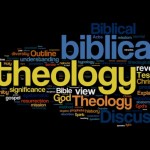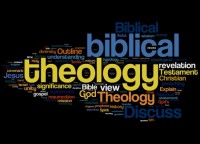I’ve been called a heretic before. I imagine that most people who teach or write about Scripture and theology have been condemned as a heretic at least once or twice.
A person might get condemned as a heretic for not believing in the Trinity, that Jesus was not God incarnate, or that the Bible is not inspired or inerrant.
Others might get condemned as a heretic for questioning whether or not Genesis 1-2 teaches creationism, or whether there will be a future rapture of the church.
 There are all sorts of ways of getting condemned as a heretic.
There are all sorts of ways of getting condemned as a heretic.
In times past, believing some of these things above could have gotten you burned at the stake.
Ironically, if one commits the greatest heresy of all time, nobody will even raise an eyebrow, point a finger, or call you to account.
Nobody has ever been fired from their job, burned at the stake, or excommunicated from church for believing the greatest heresy ever.
And what is this great heresy that nobody cares about?
The greatest heresy of all time is the lack of love toward others.
Why do I say this is the greatest heresy?
Because love is the only thing that matters when it comes to Biblical and theological knowledge.
In fact, I would argue that love is the litmus test for true biblical and theological knowledge.
If what you believe about God and the Bible does not lead you to love others more, then what you believe is not true.

Speaking the Truth in Love
In Ephesians 4:15, Paul writes about speaking the truth in love. I used to think that while one could speak the truth but not be loving, it was impossible to be loving without being truthful. When I preached through Paul’s letter to the Ephesians about 15 years ago, I taught that if one has to choose between truth or love, one should always choose truth, for there is no such thing as a loving lie.
I still sort of agree, but I would never state this idea the same way now.
I now believe that if one truly knows the truth, they will also be loving. If there is no love, then there is no truth.
If truth is truly true, it will also be loving. If truth is not loving, it is missing most of the truth that makes it true.
The Love Chapter
What Paul writes in 1 Corinthians 13 is most instructive.
He says that if we have all knowledge – you know, if we can recite the Bible forward and backward, and can argue theology with the best theologians in the world, and can read Karl Barth, and can debate about infra- supra- and sub- lapsarianism, – but have not love, then we have nothing.
You see? Without love, there is no truth. Without love, knowledge counts as nothing.
In this way, the lack of love is the worst heresy we can have.
A Lack of Love is the Greatest Heresy of All Time
 But what makes the lack of love even more heretical, is that a lack of love often leads religious people to do horrendous and hurtful things “in the name of Jesus,” which makes these actions not just heretical, but satanic and evil.
But what makes the lack of love even more heretical, is that a lack of love often leads religious people to do horrendous and hurtful things “in the name of Jesus,” which makes these actions not just heretical, but satanic and evil.
If two people are performing the exact same hateful actions, but one is doing it “in the name of Jesus,” it is the second person whose actions are more evil and satanic than the first.
If I hate a person because I’m mean, well, then that’s just mean. But if I hate a person because “Jesus told me to hate him,” this is not just mean, this is satanically mean.
This is why the lack of love – especially the lack of love from people who claim to follow Jesus – is the worst heresy in all.
When we hate and hurt and kill “in Jesus name” – we are the greatest arch-heretics the world has ever seen.
Which is worse: to teach others that Jesus was not God, or to burn such a person “in the name of Jesus” for not believing that Jesus is God?
While the first person might be wrong about the nature of Jesus, the second person is completely wrong about everything related to Jesus, for if they think that Jesus wants them to burn people who don’t understand Him, they haven’t understood the first thing about Him, and should incinerate themselves first.
So Do You Love?
So stop asking if you know the truth. The real question is, “Do you love?”
Truth leads to love and love indicates truth. If you have love, then you know the truth. If you know the truth, it will lead you to love.
And stop asking to see a church’s doctrinal statement or inquiring about whether or not an author, blogger, or teacher is “doctrinally sound.” The real question is this: “Are they loving?” If so, you can almost bet that they are living in truth as well.
So stop seeking the truth. Seek love instead, and you get truth thrown in.


 Yesterday, I proposed
Yesterday, I proposed 


